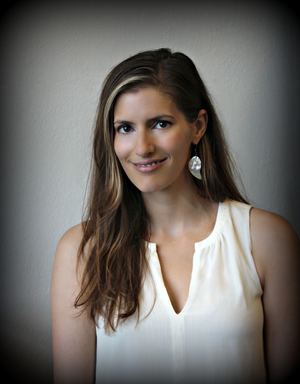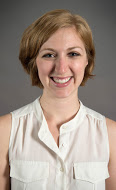May 2017 Newsletter
FEATURED FELLOWSHIPS ARTICLES/BLOG POSTS
CURRENT ISSUE
FEBRUARY 2021
JANUARY 2021
DECEMBER 2020
NOVEMBER 2020
OCTOBER 2020
SEPTEMBER 2020
AUGUST 2020
JULY 2020
JUNE 2020
MAY 2020
APRIL 2020
MARCH 2020
FEBRUARY 2020
JANUARY 2020
DECEMBER 2019
NOVEMBER 2019
OCTOBER 2019
AUGUST 2019
JULY 2019
JUNE 2019
MAY 2019
APRIL 2019
MARCH 2019
FEBRUARY 2019
JANUARY 2019
DECEMBER 2018
NOVEMBER 2018
OCTOBER 2018
SEPTEMBER 2018
AUGUST 2018
JULY 2018
JUNE 2018
MAY 2018
APRIL 2018
MARCH 2018
FEBRUARY 2018
JANUARY 2018
DECEMBER 2017
NOVEMBER 2017
SEPTEMBER 2017
AUGUST 2017
JULY 2017
JUNE 2017
MAY 2017
APRIL 2017
MARCH 2017
FEBRUARY 2017
JANUARY 2017
DECEMBER 2016
NOVEMBER 2016
OCTOBER 2016
SEPTEMBER 2016
AUGUST 2016
JULY 2016
JUNE 2016
FEBRUARY 2016
DECEMBER 2015
NOVEMBER 2015
JULY 2015
APRIL 2015
FEBRUARY 2015
NOVEMBER 2014
OCTOBER 2014
SEPTEMBER 2014
AUGUST 2014
JUNE 2014
JANUARY 2014
OCTOBER 2013
JULY 2013
APRIL 2013
FEBRUARY 2013
NOVEMBER 2012
JULY 2012
APRIL 2012
JANUARY 2012
Dr. Angela Diaz, Doris Duke Fellowships Advisory Board Member, Elected to Governing Council of the National Academy of Medicine
Dr. Angela Diaz is the Jean C. and James W. Crystal Professor in the Departments of Pediatrics and Preventive Medicine at the Icahn School of Medicine at Mount Sinai; and is the Director of the Mount Sinai Adolescent Health Center (MSAHC). Dr. Diaz serves on the advisory board of the Doris Duke Fellowships, providing expertise and guidance in adolescent health and well-being. Earlier this month, Dr. Diaz was elected to the National Academy of Medicine (NAM)’s Governing Council. Membership in NAM is one of the highest honors a medical professional can receive, and being elected to the governing council celebrates professional achievement and important contributions to health care and public health. Congratulations, Dr. Diaz, and thank you for your service to the field and to the Doris Duke Fellowships!
Doris Duke Fellowships Cohort Six Small Group Op-Ed Published in the Huffington Post
Cohort Six fellows Rachel Katz, Julia Fleckman, Alison Giovanelli, Melissa Marquardt, and Jennifer Daer Shields’ small group wrote an op-ed piece, “To The Citizens Of The United States: Our Children Need Your Protection,” that was published in the Huffington Post and was recently featured on the front page of the Lifestyle: Healthy Living section. The op-ed urges U.S. citizens to support expanded access to Medicaid and preventive care and high quality child care, and to invest in learning how best to prevent child maltreatment and enhance child well-being as strategies to protect the nation’s most vulnerable young people. Congratulations, fellows!
Doris Duke Fellows Updates
The Doris Duke fellows are having an exciting spring! Check out their updates about jobs, awards, publications, and more!
Ericka M. Lewis, a Cohort Five fellow, is the 2017 recipient of the American Professional Society on the Abuse of Children's Outstanding Doctoral Dissertation Award. This award recognizes a person whose dissertation has the greatest potential for making a significant contribution to the child maltreatment theoretical and applied knowledge base.
Byron Powell, a Cohort Two fellow, was recently awarded a four-year career development award from the National Institute of Mental Health (K01MH113806) for a project titled, “Improving the Implementation and Sustainment of EBPs in Mental Health: Developing and Piloting the Collaborative Organizational Approach to Selecting and Tailoring Implementation Strategies (COAST-IS).” Byron also has three recent publications in Implementation Science: “Are general and strategic measures of organizational context and leadership associated with knowledge and attitudes toward evidence-based practices in public behavioral health settings? A cross-sectional observational study,” “Organizational theory for dissemination and implementation research,” and “The association between implementation strategy use and the uptake of hepatitis C treatment in a national sample.”
Aislinn Conrad-Hiebner and Katherine Paschall, both of Cohort Four, recently published a manuscript together in Children and Youth Services Review titled, "Determining risk for child physical harm through the classification of economic insecurity."
Emily Bosk, a Cohort Two fellow, collaborated with Michael MacKenzie, an Academic Mentor for the Doris Duke Fellowships, and Charles Zeanah to write about the consequences for children’s health and well-being of current immigration policy; their article, “Separating Families at the Border—Consequences for Children’s Health and Well-Being," was published in the New England Journal of Medicine earlier this month.
Catherine Corr, a Cohort Four fellow, will begin a new position as an Assistant Professor in Special Education at the University of Illinois, Urbana-Champaign starting in June 2017.
Featured Fellow Interview:
Amanda Van Scoyoc
Each month, Sarah Wagener, Fellowship Network Coordinator, connects with a different graduated fellow to showcase the myriad ways in which Doris Duke fellows prevent child maltreatment and promote the health and well-being of children and youth.
This month, Sarah connected with Dr. Amanda Van Scoyoc, a Cohort Two fellow, about her experience as a Clinical Psychology Fellow at Yale Child Study Center at the Yale School of Medicine, where she specializes in child trauma.
Sarah Wagener (SW): What populations do you work with at Yale Child Study Center? What have you learned about the people you support? What have you learned about yourself?
Amanda Van Scoyoc (AVS): At Yale Child Study Center, I am the first year Fellow specializing in child trauma. I see children of all ages with a wide range of presenting problems. The majority of patients have a trauma history that has contributed to their current challenges. In addition, I work alongside the New Haven Department of Police Service as a part of the Child Development-Community Policing Program. With this partnership, mental health clinicians respond alongside police colleagues to acute traumatic incidents that involve children. In addition to responding acutely, we follow up with families in the wake of experiencing violence.
Through this work, I have learned that, as a community, we are best able to meet children’s and families’ needs when we work together across areas of specialization. Working alongside the police often provides much greater support to families. For example, many of the incidents that we are called to involve domestic violence or community violence where there are continued concerns around basic safety. As a clinician, I am much better able to engage with families once preeminent safety concerns have been adequately addressed by police officers.
In terms of what I have personally learned, this year I have learned to have a strong voice as a mental health provider. I have come to realize that often what I can provide to patients and other professionals is my conceptualization of a case. Responding acutely alongside other professionals requires a clear differentiation of roles and a clear professional stance. I have found confidence in my quick clinical assessment of situations and my ability to communicate about the therapeutic needs of patients.
SW: You have spent time as a researcher and as a practitioner. How does your experience as a researcher influence your role as a practitioner? Are there any issues that you observe as a practitioner that you would like to examine through research?
AVS: As a clinician and a researcher, I think about difficulties engaging the most at-risk populations in mental health services. As a researcher, I investigate how to support pregnant women with addictions in engaging with services as early as possible in pregnancy. As a clinician, due to the nature of acute trauma clinical work, my first contact with patients is often through a police referral or through an emergency department referral. This leads to being in contact with families who are not actively seeking mental health services but who often would greatly benefit from these supports. Engaging this population is clinically challenging, but is an opportunity to support families who would not otherwise be seeking services. This clinical work has broadened my research interests in engagement. In the future, I am interested in researching how to engage individuals in mental health services through their use of critical services (e.g., hospital visits, policing, emergency department use, schooling, pediatrician visits). I have come to realize that it is not enough to wait for self-referrals. We need to be more creative in bridging the gap between service needs and service access.
SW: What do you wish policymakers knew about the people you support as a practitioner?
AVS: I wish that policymakers better took advantage of the incredible opportunities that exist to positively impact the next generation by supporting new parents and young children. In researching the experiences of women who struggle with addiction during pregnancy, I have learned the great frequency to which these women seek information about how to make positive changes to their lives. Unfortunately, current policies can make it more difficult for women who are interested in making positive changes to access supportive services.
Similarly, in my current work, I often see children growing up in communities where they have witnessed considerable community violence and where their ongoing safety continues to be a concern. The most difficult cases for me clinically are the children that return to homes or communities where they are likely to have the types of negative experiences that we know undermine optimal development. It is through addressing basic needs like access to health care services and housing in safe communities that we can halt the intergenerational cycle of poverty and trauma.
SW: How has your experience as a Doris Duke fellow influenced your current work and/or professional aspirations?
AVS: As a Doris Duke fellow, I learned to dream large when thinking about policy changes that could make a difference for children and families. Now, when I work with a family and find myself frustrated with the systems at play, I try to become curious and think critically about the malleability of policies that are in place. I always try to let frustration be a catalyst for change. I have also learned the importance of working across silos of knowledge between different professions. I truly believe that developing partnerships and collaborations across professions is the best way to work towards solutions to the most difficult problems in our field.
SW: What advice do you have for fellows in psychology disciplines as they make decisions about where to complete their clinical internships and/or a postdoctoral fellowship?
AVS: My advice is to apply broadly and be open to narrowing down what you want during the application and interviewing process. I applied to a number of different types of programs, and it was through interviewing that I realized how important it was for me to specialize in child trauma. Ranking for me didn’t include long lists of positives and negatives for each site; it was based on a gut reaction. When I interviewed at Yale, I was so excited by the conversations that I had here that I didn’t want the interview day to end. I created my rank list based upon those strong reactions to different sites.
Noteworthy Resource: diversitydatakids.org
Diversity Data Kids is a comprehensive information system to monitor diversity, opportunity, and equity for U.S. children housed at the Institute for Child, Youth and Family Policy at the Heller School for Social Policy and Management at Brandeis University. Check out diversitydatakids.org to explore hundreds of measures of child well-being and policy analysis!
Policy Update: American Health Care Act Receives Score from Congressional Budget Office
The newest version of the American Health Care Act, the Trump Administration’s plan to repeal and replace The Affordable Care and Patient Protection Act (ACA), received a score from the Congressional Budget Office (CBO) in late May. The CBO indicated that the revised Republican bill would leave 23 million more people uninsured than if the ACA remained in place. Additionally, the bill is estimated to reduce the deficit by $119 billion over 10 years. A panel of experts in health economics and budget policy who have served in Republican and Democratic administrations provide commentary in this New York Times piece.











